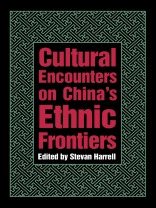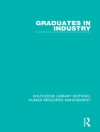Open-access edition: DOI 10.6069/9780295804088
China’s exploitation by Western imperialism is well known, but the imperialist treatment within China of ethnic minorities has been little explored. Around the geographic periphery of China, as well as some of the less accessible parts of the interior, and even in its cities, live a variety of peoples of different origins, languages, ecological adaptations, and cultures. These people have interacted for centuries with the Han Chinese majority, with other minority ethnic groups (minzu), and with non-Chinese, but identification of distinct groups and analysis of their history and relationship to others still are problematic.
Cultural Encounters on China’s Ethnic Frontiers provides rich material for the comparative study of colonialism and imperialism and for the study of Chinese nation-building. It represents some of the first scholarship on ethnic minorities in China based on direct research since before World War II. This, combined with increasing awareness in the West of the importance of ethnic relations, makes it an especially timely book. It will be of interest to anthopologists, historians, and political scientists, as well as to sinologists.
Spis treści
Introduction: Civilizing Projects and the Reaction to them
Part One | The Historiography of Ethnic Identity: Scholarly & Official Discourses
1. The Naxi and the Nationalities Question
2. The History of the History of the Yi
3. Defining the Miao
4. Making Histories
5. Pere Vial and the Gni-P’a: Orientalist Scholarship and the Christian Project
6. Voices of Manchu Identity, 1635-1935
Part Two | The History of Ethnic Identity: The Process of Peoples
1. Millenarianism, Christian Movements, & Ethnic Change Among the Miao in Southwest China
2. Chinggis Khan: From Imperial Ancestor to Ethnic Hero
3. The Impact of Urban Ethnic Education on Modern Mognolian Ethnicity, 1940-1966
4. On the Dynamics of Tai/Dai-Lue Ethnicity: An Ethnohistorical Analysis
Glossary
References
Contributors
Index
O autorze
Stevan Harrell is professor emeritus of anthropology and environmental and forest sciences at the University of Washington. He is the author of Ways of Being Ethnic in Southwest China (University of Washington Press, 2001) and An Ecological History of Modern China (University of Washington Press, 2023); and editor of the University of Washington Press book series Studies on Ethnic Groups in China.












